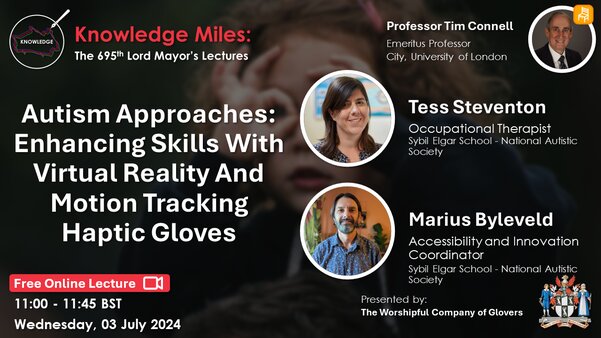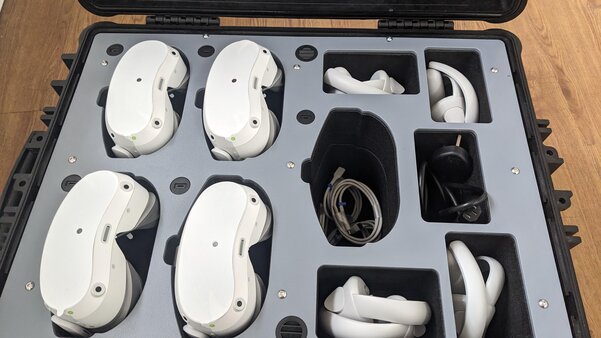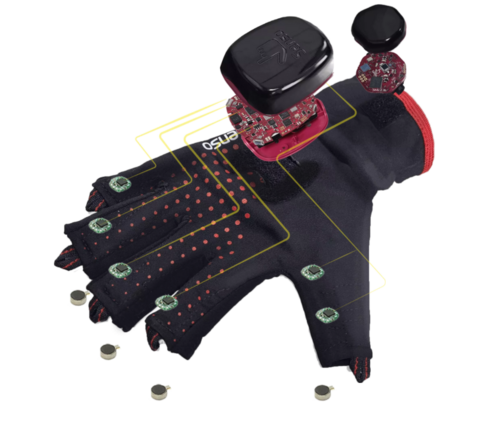How virtual reality and motion tracking gloves are helping autistic students learn
Published on 02 July 2024

Students at the National Autistic Society - Sybil Elgar School, are using innovative technology in their learning, to explore virtual worlds, practice life-enhancing skills and develop through play.
A charitable contribution from The Worshipful Company of Glovers – a trade association formed in London in 1349 - means pupils at our school in Southall and Acton are piloting fully immersive and interactive virtual reality headsets, controllers, and motion tracking haptic gloves.
In celebration of this partnership and discussing their journey so far, Tess Steventon, Occupational Therapist and Marius Byleveld, Accessibility and Innovation Coordinator at Sybil Elgar School will be taking part in a free online webinar lecture on Wednesday 3 July 2024 at 11am.
“In this talk, we will share our experiences so far with putting on the gloves of the future and getting virtual reality to work for autistic people. We will discuss the current shortcomings of the technology as applied to our educational setting, as well as our plans for integrating it into our curriculum and therapeutic offerings”
Marius Byleveld, Accessibility and Innovation Coordinator at the National Autistic Society - Sybil Elgar School.
The Technology

The VR headsets and controllers donated by The Glovers
This technology is being used by autistic students, of all ages, at Sybil Elgar School. It is helping them experience real-world scenarios, thanks to:
- Motion tracking haptic feedback gloves
-
Virtual reality headsets that provide six degrees of freedom (6DoF) movement - Controllers allow students to move and look around in all directions
-
A 360-degree camera for creating virtual tours.
In addition to the VR headsets, the Senso haptic feedback gloves work with a gaming platform. This is benefiting students with hand challenges, such as a diagnosis of cerebral palsy which can make it difficult for the young person to spread their fingers when playing the piano.

A Senso VR glove
The gloves track precise finger movements and gestures, so the autistic young people can control VR programmes, practice their skills in a virtual environment and develop important motor skills for everyday tasks. Students control the games on a laptop screen, and are encouraged to move their hands in specific ways, such as opening and closing their index finger and thumb.
To book your place on the webinar lecture, presented by The Glovers with the Gresham Society, click here.
